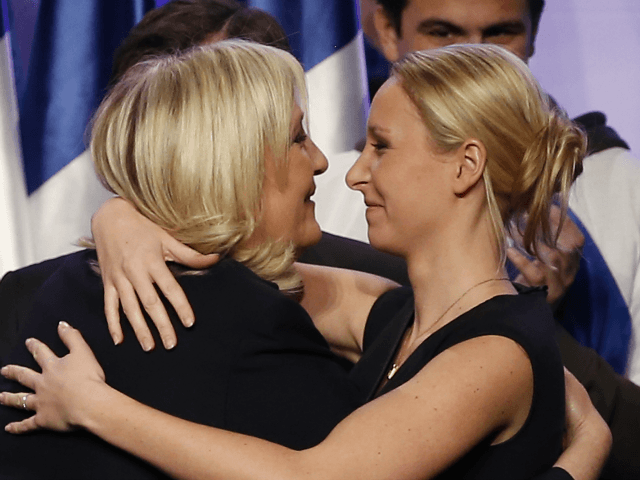France’s Front National (FN) failed to win a single region in elections Sunday despite record results in the first round, as voters flocked to traditional parties to keep them out of power, according to early estimates.
The leader of the anti-immigration FN, Marine Le Pen, lost out to the centre-right opposition in the northern Nord-Pas-de-Calais Picardie region after the ruling Socialists pulled out of the race before the second round.
Her 26-year-old niece Marion Marechal-Le Pen was also defeated by the centre-right grouping in the southern region that includes the glitzy resorts of the Cote d’Azur, despite dominating the first round last week.
The FN had topped the vote in six of 13 regions on December 6, but once again suffered in the second round of an election as voters rushed to support mainstream parties at the final hurdle.
With turnout high on Sunday at around 59 percent, the centre-right grouping appeared to have won at least five of the regions.
The election was held under tight security following the November 13 attacks in Paris in which 130 people were killed.
Despite the FN failing to grab its first-ever region, Marine Le Pen will still use her party’s performance as a springboard for her bid for the 2017 presidential election.
The FN has topped European and local polls over the past two years, bolstering Le Pen’s claim that it is now “the first party of France”. It controls around 11 towns across the country.
But Sunday showed once again that the party struggles in the deciding round as mainstream voters gang up to keep it from power.
– ‘A time bomb’ –
Early estimates showed Marine Le Pen scored around 42 percent to nearly 58 percent for her centre right rival Xavier Bertrand in the economically depressed north.
Her niece scored around 45 percent to nearly 55 percent for her centre right rival in the FN’s traditional stronghold in the south.
The FN argues that the political manoeuvring by the main two political parties shows that they are two sides of the same coin and they offer the only real political alternative.
“Frankly, I’m voting against the FN in the interests of my family,” said Issa Kouyate, a 59-year-old voter of Senegalese origin, as he went to cast his ballot in the southern city of Marseille, where a high proportion of citizens are of immigrant background.
“There’s danger,” said Kouyate, describing the FN’s 40-percent score in the region’s first round as “a time bomb”.
Some were not pleased with the tactical games of the ruling party.
“Since the Socialist Party has pulled out, I feel like they’ve stolen my vote,” said 56-year-old Didier as he voted in the northern city of Lille.
He said he would leave his voting slip blank, though he worried about letting Le Pen win.
“If it’s down to me that she wins, then I’ve done wrong,” he said.
The FN took 28 percent of the vote nationally last Sunday, ahead of 27 percent for the Republicans and their allies.
Le Pen has reaped the rewards of her efforts to “de-demonise” the party bequeathed by her father Jean-Marie Le Pen, but it retains a stridently anti-immigrant edge. Critics accuse it of fomenting Islamophobia.
Her campaign has also exploited anger over the situation in the northern port of Calais, where thousands of migrants are camping in squalid conditions.
Socialist Prime Minister Manuel Valls said he had “no hesitation” in urging voters to back the Republicans to keep the FN from power — as they did in 2002 when voters switched to Jacques Chirac in a presidential run-off against Jean-Marie Le Pen.
France’s regions have recently been enlarged and control key areas such as transport, schooling and local business support.
Original reporting by AFP
